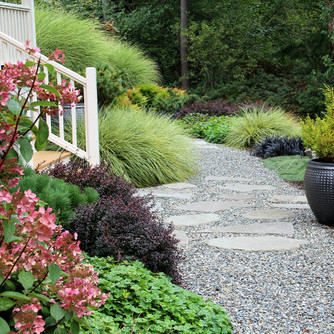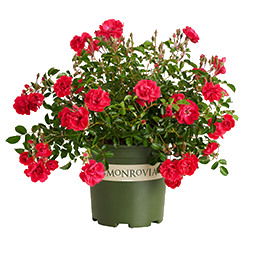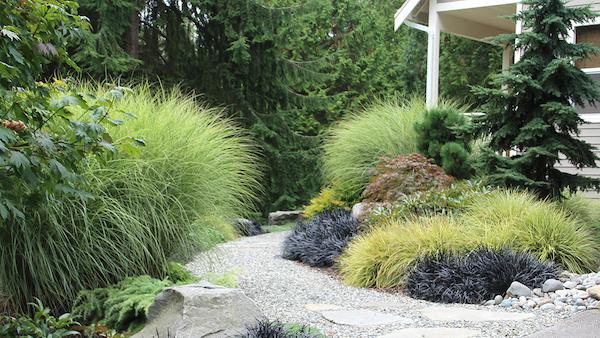The title here might have you saying, “I don’t get the problem.” However, when the native environment is so spectacular and singular, it can be a challenge. (As seen in this lush setting on Bainbridge Island, WA.) Especially to create a landscape that feels like a natural extension. The key, according to landscape designer Tish Treherne of Bliss Garden Design is don’t even even attempt to compete. Make your playbook “if you can’t beat ’em, join ’em”. She used plants with scale that weren't dwarfed by the surrounding trees. Thus, continuing the calm, natural feeling through limited colors and plant palette, and repetition of that palette. And, she kept it low maintenance. Says Tish, ” Everyone is so busy these days – a garden should not be another “have to” – it should be restorative.” We agree! (“Before” shots here.)

The Details
Gravel paths with bluestone steppers wrap the house. Comprised primarily of evergreens (helps cut down on maintenance), the landscape is vibrant. This is due to the foliage hues of lime, black, silver, and burgundy.
Get the Look: Seamless integration
- Scale is everything when you have a mature surrounding landscape; this is your chance to go big and bold
- Gravel, in additional to mirroring the nearby creek here, reduces hardscaping costs and improves permeability
- Avoid pricey irrigation by using drought tolerant ornamentals and native plants where possible
- Using plants such as the hydrangea and barberry at the entrance. Layering in shapely containers (left), adds a note of formality to this natural scene
- Never underestimate the impact of stone, rocks, boulders; they add texture that helps both break up and amplify massed foliage.






Please login to comment.
Don't have an account?
Sign Up for free